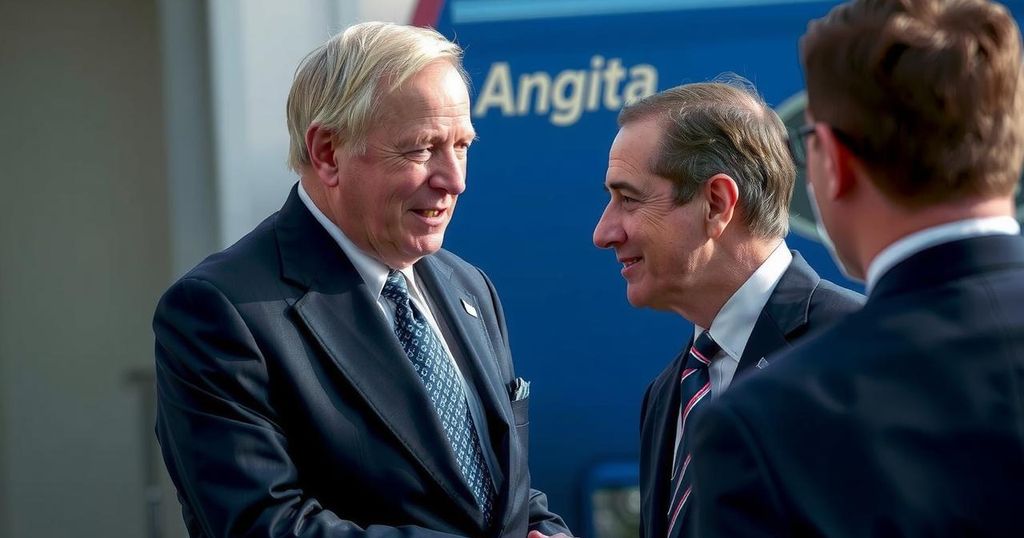Biden’s European Visit: Solidifying Support for Ukraine Amidst Election Concerns
During his significant trip to Europe, President Biden advocated for ongoing support of Ukraine and the pursuit of peace in the Middle East while highlighting the potential impact of the 2024 U.S. presidential election on transatlantic relations, amid his meetings with key European leaders.
In a pivotal trip to Europe, President Joe Biden emphasized the critical need for continued support of Ukraine and sought to navigate pathways toward peace in the Middle East. During discussions with German Chancellor Olaf Scholz and planned meetings with French President Emmanuel Macron and UK Prime Minister Rishi Sunak, the looming implications of the upcoming U.S. presidential election hung heavily over the dialogue. The potential return of former President Donald Trump, known for his contentious stance toward European alliances and his unpredictability regarding U.S.-European relations, raised concerns among European leaders. Biden, addressing a ceremony in Berlin, received noted praise from German President Frank-Walter Steinmeier, who underscored the strength of the transatlantic alliance—a strength which he attributes, in part, to Biden’s leadership. Steinmeier reflected on the forthcoming elections, reminding audiences, “In the months to come, I hope that Europeans remember America is indispensable for us, and I hope that Americans remember your allies are indispensable for you.” During these meetings, President Biden reiterated his administration’s commitment to Ukraine, celebrating the partnership in helping Ukrainians fight for their sovereignty and democracy. Notably, he was honored with Germany’s Grand Cross Special Class for his significant contributions to various fields, proclaiming the importance of democracy and alliances on the global stage. On a related note, Biden addressed recent developments in Gaza following the death of Hamas leader Yahya Sinwar, which he characterized as an opportunity for renewed talks towards a cease-fire in the region. Chancellor Scholz echoed this sentiment, suggesting that with Sinwar no longer a factor, there exists a tangible chance for a ceasefire. The meeting held considerable implications, as Biden, Scholz, Macron, and Starmer are expected to deliberate on these pressing issues further untethered by previous obstacles in the dynamics of the conflict.
President Biden’s trip to Europe serves as a crucial strategic move amidst ongoing global conflicts, specifically the war in Ukraine and tensions in the Middle East. The discussions with European leaders underline the necessity of a unified response to external aggression, particularly from Russia, and illustrate the complexities introduced by the upcoming U.S. elections. The uncertainty surrounding the position of the United States and its alliances, especially with the potential return of Donald Trump—a figure whose past presidency was marked by strained international relations—looms large in the backdrop of these conversations.
In conclusion, President Biden’s European visit reinforces the United States’ commitment to its allies and the necessity for continued support for Ukraine, alongside efforts to navigate peace in Gaza. The challenges posed by the impending U.S. presidential election cannot be understated, as they bear potential ramifications for the future of transatlantic relations. Notably, the dialogue among leaders aims not only to address immediate crises but also to foster alliances that could safeguard democratic values in the face of rising geopolitical threats.
Original Source: www.usatoday.com




Post Comment